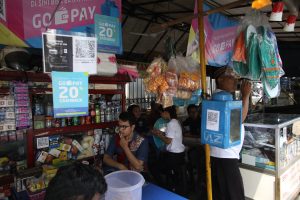GoJek’s Metal Ignition

Private Equity: Standard Chartered Wants to Combine Venture Capital with Internal Innovation
1 October, 2018
Yes Bank: Kapoor’s Diamonds are Forever
3 October, 2018Euromoney, October 2018
GoPay is southeast Asia’s answer to Ant Financial. Its CEO comes with a background in the most micro level of finance: empowering village housewives to buy things to cook with. How will he build a business backed by the biggest names in global private equity?
Full article: https://www.euromoney.com/article/b1b7bjb93d68tc/indonesia-financial-inclusion-gojeks-metal-ignition?copyrightInfo=true
The story starts with a pot in a village and a motorbike in a city.
Ten years ago Aldi Haryopratomo was working for Kiva, a San Francisco-based non-profit with an online lending idea, and had been touring around Vietnam and Indonesia on a motorbike looking for microfinance banks. It was sometimes a struggle.
“People would take my laptop and try to shake it to get the money out,” he says. “They had never seen online lending.”
Seeing the villages first-hand, it occurred to him that what communities needed to climb out of poverty came down to the most basic things, starting with affordable access to pots and pans. In his native Indonesia, this is how life worked at the truly grass-roots level: a pot that would cost Rp300,000 ($40) in a store in the city was twice that price in the village because they could only ever be bought on credit. With costs so prohibitive, villagers couldn’t afford enough pots, and so they would take turns using them.
Aldi learned a simple lesson about business from this.
“Rather than build something from the top down and saying: ‘I’m an e-commerce company’, why don’t you start with asking: ‘What does the user need?’” he says. In this case: “I need to buy a pot that helps me cook rendang [a spicy meat dish] for Eid so I don’t have to wait seven days to eat it because I have to take turns using my pot.”
So he founded Mapan, also known by its holding company name, Ruma, in 2009.
Mapan rests upon the fact that in any village or community, there is a natural leader.
“If you can find the community leader, who may not be the most wealthy or the most powerful but the person who really cares about the village, and ask them what they need, you can come up with a solution you might not have thought of yourself.”
In the first village where Mapan tried this out, this person was a woman who owned a shop in front of the school; people would leave their children at her shop and everyone called her auntie.
“Everyone trusts her with their children: she must have some influence,” says Aldi. “You’re not going to give your children to someone you don’t trust.”
More often that person is a teacher, who is usually already a community leader.
“It depends,” says Aldi. “There is no one occupation. But when you go to a village, people will tell you. You can see it sometimes: the way they walk, the way people talk to them, the way they smile. There’s a lot of trademarks to these influencers.”
Continues. Read the full article here: https://www.euromoney.com/article/b1b7bjb93d68tc/indonesia-financial-inclusion-gojeks-metal-ignition?copyrightInfo=true
